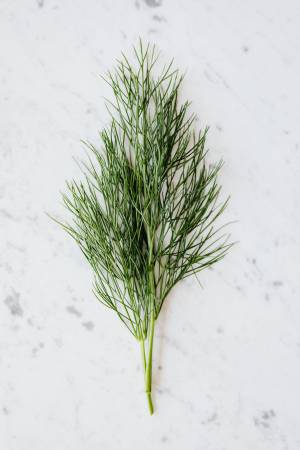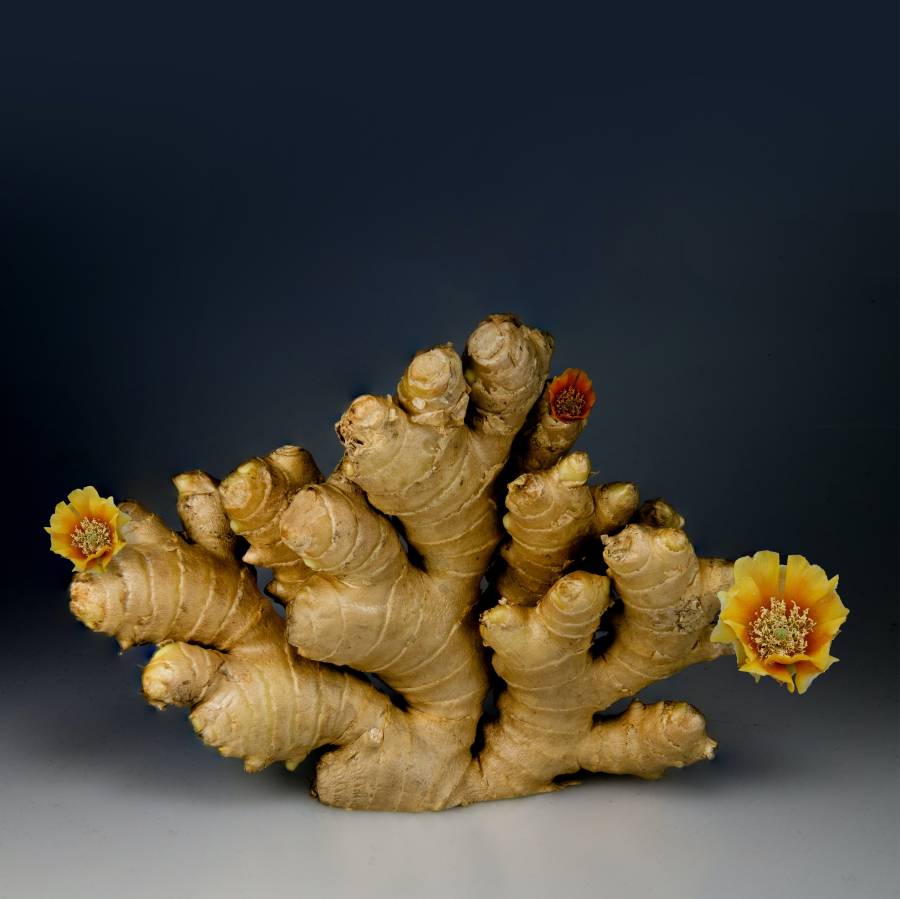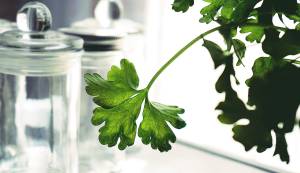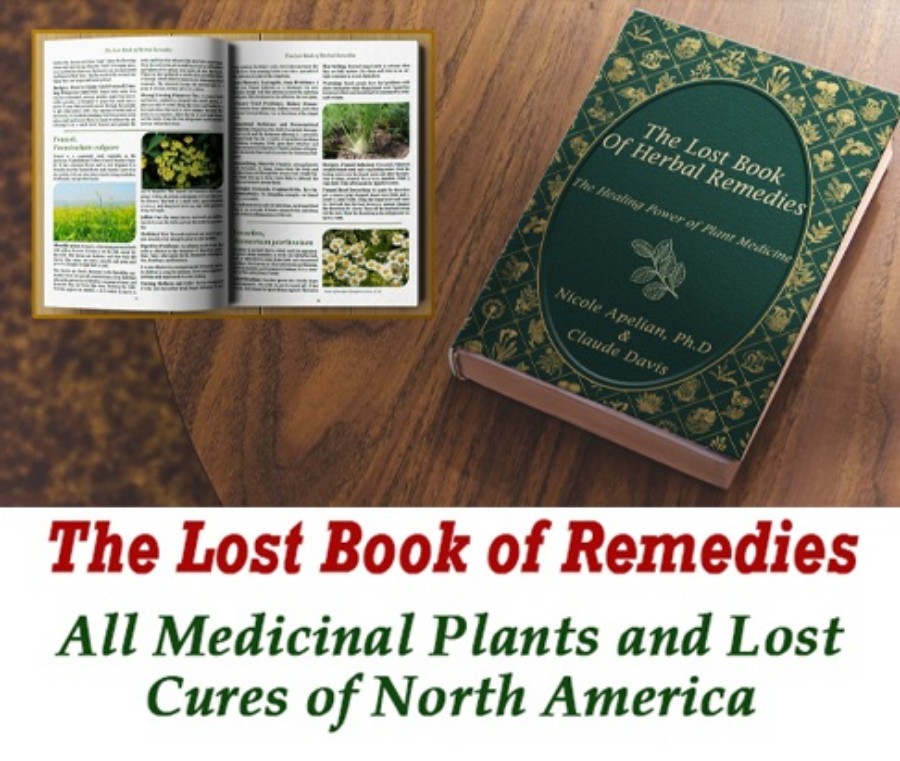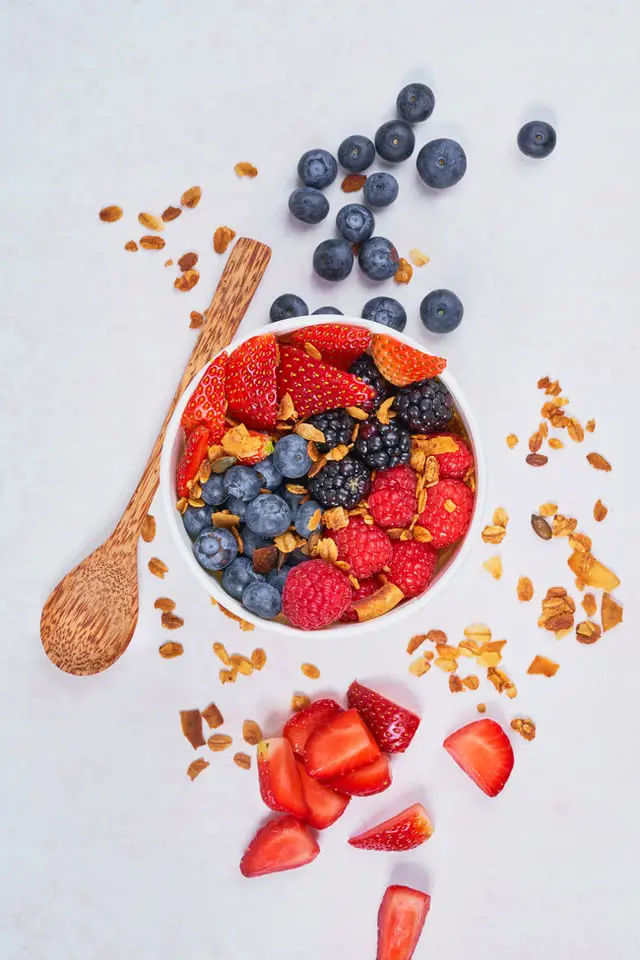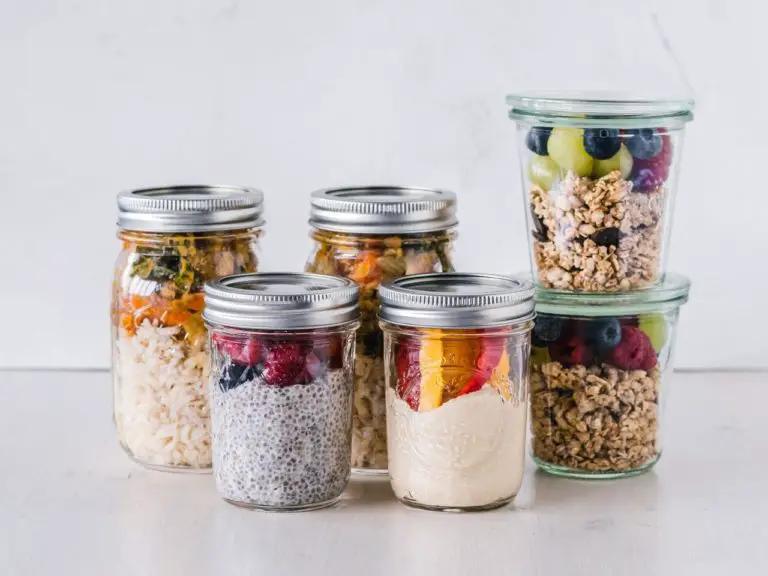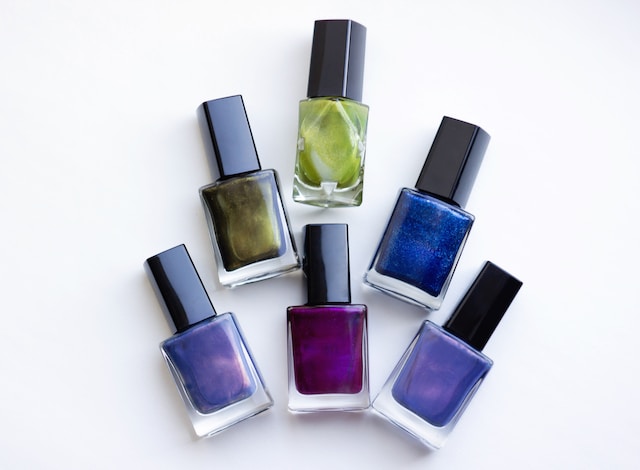25 herbs and spices you should know about.
Introduction
By Definition, “herbs are the leaf part of a plant that is used in cooking – these can be used fresh or dried. Any other part of the plant, which is usually dried, is referred to as a spice.” However, there is always some confusion by the public regarding this conception. In general, one tablespoonful of a dried herb is equal to a fresh one.
General health benefits
There are many claimed benefits of herbs and spices, some are scientifically proven and others are not yet. The main categories of shown benefits are:
- Effect on blood lipids: some (like garlic, clover, cinnamon, oregano, and fenugreek) can lower “bad” cholesterol and with their anti-oxidant effect, can further be protective for the cardiovascular system and the body in general.
- Effect on blood sugar: flaxseed, fenugreek, and cinnamon can be helpful with other medical measures as drugs and diet, to control blood sugar.
- Effect on blood pressure: garlic is proven to reduce mildly elevated blood pressure.
- Effect on cancer prevention: like garlic, basil, and oregano
It should be noted that many specialists advise taking the original rather than a processed form (capsules, syrups,.. ) of a herb or spice to get the best benefit unless otherwise advised by your physician.
There are seventy spices listed in Britannica, however, more than 100 common spices are known and used in cooking around the world.
More than 11% of the basic drugs ever known are derived from a plant origin including aspirin and morphine.
Among hundreds of herbs and spices known, the common findings and recommendations that can be stated are:
- Some of the top herbs and spices are garlic, ginger, mint, turmeric, red pepper, and fenugreek. Always treat herbs as you treat drugs.
- If you are not sure, try to avoid them in special groups, like pregnant, breastfeeding mothers, and young children.
- Please note that in almost all herbs and spices, there is a possible risk of unexpected side effects such as allergy.
- Avoid taking several of them in combination and large amounts.
- Some can be regularly and safely in quantities found in food unless there are contraindications such as garlic.
- Some are better taken only when prescribed by a physician like Gingko.
- If you are taking any medicine, don’t stop your medicine and depend solely on a herb. Most are used as additives, not sole medicines.
- Always inform your physician about your herbal intake, take care of drug interactions, scheduled surgery.
In this article, we are going to discuss 25 of the most common of them in brief, mentioning an overview, suggested daily intake, and special precautions of each.
25 herbs and spices list
Overview: it gives the tea a unique taste. I urge you to try it. Basil seeds have an antioxidant effect as well as helping to lower your cholesterol level as well. Some claim it has an anti-cancer effect.
Reasonable intake for adults: one to two tablespoonful per day.
Pregnancy: basil is considered a pregnancy superfood. It promotes fetal growth and improves his bones. It’s probably unsafe to take more than the above-mentioned intake.
Children: suitable above 2 years of age. It’s probably unsafe to take more than the above-mentioned intake.
Special conditions: avoid 2 weeks before and after surgery.
Overview: Cayenne or red pepper is a type of chili. Its main component that bears most of its effects is capsaicin.
Capsaicin can relieve muscle and joint pain when applied locally, has a nice warming effect, and we –as doctors- advise some diabetics to apply it on their legs for their extremely painful neuropathy (inflammation of their nerves).
When consumed by mouth, in addition to its nice “hot” taste, it can be used to help reducing weight by reducing the sense of hunger, and burn more fats. This effect was demonstrated by many studies and is the reason why many weight-losing diets may add red pepper to their menu.
On the contrary to the common belief that it can cause gastric ulcers, it was proven by many scientific studies that the opposite is the case. It was proven that it can reduce gastric acid secretion which will help the healing of the ulcer in a shorter time. Also, an anti-microbial effect against H.Pylori which is the cause of the majority of gastric and duodenal ulcers was demonstrated by capsaicin.
Reasonable intake for adults: never exceed 120 milligrams per day by mouth. When applied to the skin, please follow the leaflet with the drug package.
Pregnancy: safe. It’s probably unsafe to take more than the above-mentioned intake. Probably UNSAFE during breastfeeding.
Children: no enough data.
Special conditions: avoid 2 weeks before and after surgery. Possible interactions with blood-pressure-lowering medicines.
Overview: A beautiful flower is thought to have an anti-anxiety effect, which was demonstrated by many studies. This effect makes it a safe calming tea used for anxiety and insomnia for a long duration without significant side effects. Also, it has a very nice soothing effect for babies with colic and helps indigestion.
Reasonable intake for adults: No consensus. In general, up to 1.3 g in capsule form per day is safe. As a tea, some consume up to four cups per day.
Pregnancy: Unsafe. Not enough data.
Children: safe for any age. Better after 6 months.
Special conditions: many interactions with drugs exist as oral contraceptives, anticoagulants, and others. Please refer to your physician if you are taking any medicine.
Overview: One of the most commonly used spices that can be added nearly to all foods. Its main health benefit is related to the fact that it contains cinnamaldehyde which increases the natural insulin sensitivity by the body.
This, in turn, can reduce blood sugar (at least in the earliest stages of type 2 diabetes, when there is still residual insulin secretion by the pancreatic cells) by around 15%. It cannot help type 1 diabetes where the insulin secretion is less than 10% of its normal.
Another important effect, also related to the increase of insulin sensitivity, is its lipid-lowering effect. This, in turn, has an impact on heart health.
One last effect is its anti-inflammatory and anti-oxidant effect, which is further important in keeping the body healthy. This effect leads to the thought that cinnamon can be healthy for skin and brain tissues, and may prove to be of value as an additive to the medical treatment of Alzheimer’s disease.
Reasonable intake for adults: up 6 grams or around 0.5–2 teaspoons per day.
Pregnancy: No enough data.
Children: safe for teen ages.
Special conditions: many interactions with drugs exist as oral anti-diabetics. Stop using it before and after surgery for better blood sugar control. Please refer to your physician if you are taking any medicine.
Overview: Cilantro is mainly an anti-inflammatory herb. It contains vitamins A, C, E, and K.
Reasonable intake for adults: no enough data.
Pregnancy: No enough data.
Children: No enough data.
Special conditions: No enough data. Stop using it before and after surgery as it may prolong bleeding. Please refer to your physician if you are taking any medicine.
Overview: These leaves contain vitamin A and C and has also an anti-oxidant activity which possibly has a beneficial effect on heart health.
Reasonable intake for adults: no enough data.
Pregnancy: Possible Unsafe.
Children: No enough data.
Special conditions: interacts with lithium. It lowers blood sugar and thyroid hormone levels, so, if you are diabetic or hypothyroid, you must consult your physician.
Stop using it before and after surgery as it may lower blood sugar. Please refer to your physician if you are taking any medicine.
Overview: A long known coneflower which bloom was used in ancient medicine for healing wounds and today its extract is mainly used to improve immunity during respiratory illness as common cold with some anti-viral effect.
Reasonable intake for adults: usually available as a liquid extract. Please refer to the drug leaflet. For oral use, it is generally safe for up to 10 days and local skin application for up to 12 weeks.
Pregnancy: Possible Unsafe. Breastfeeding mothers are also better to avoid oral intake.
Children: not allowed before 12 years old and for no more than 10 days.
Special conditions: serious side effects occur in patients with diseases related to the immune system. Also, interaction with caffeine is important as it can increase the effect of caffeine on your body. Please refer to your physician if you are taking any medicine as it also interacts with several medicines.
Overview: Over the last two or three decades, studies emerged demonstrating the benefit of primrose extract in diabetic neuropathy. Since this is a part of my field, we had to deal with the new era with an evidence-based approach.
Many studies had demonstrated this effect and others like relieving the peri-menopausal symptoms and some conditions such as atopic dermatitis and eczema.
The main problem with primrose extract is that can interact with some medications, the most important of these in our case is aspirin and other antiplatelet and anticoagulant drugs. This is of particular concern as aspirin is routinely given in many diabetic patients and if the primrose extract is given also, major bleeding may occur.
Reasonable intake for adults: maximum 6 g per day.
Pregnancy: Possible safe, but better avoided in the last month of pregnancy. Breastfeeding mothers are also better to avoid oral intake.
Children: no enough data.
Special conditions: Stop using it before and after surgery as it may prolong bleeding. Should be avoided in epilepsy and some psychiatric disorders. Please refer to your physician if you have any other disease or taking any medicine as it also interacts with several medicines.
Overview: One of the few plant sources of omega-3, it has anti-oxidant and anti-inflammatory activities. It can be considered a safe choice to add to your diet either as an oil or ground seeds.
Suggested benefits include reducing blood pressure, preventing colon cancer, and helping weight loss, however, none is scientifically proven.
An important notice is that flaxseed contains an estrogen-like substance which may contribute to its effects on breast cancer, however, this effect is still not proven. It can have an anti-testosterone effect in males with possible undesirable effects.
Reasonable intake for adults: maximum 60 g per day for 48 weeks. The recommended intake is different according to the condition.
Pregnancy: Possibly unsafe during pregnancy and breastfeeding.
Children: safe in infancy but no enough data regarding the allowed consumption.
Special conditions: Stop using it before and after surgery as it may prolong bleeding.
Please refer to your physician if you have any other disease (including cancers) or taking any medicine as it also interacts with several medicines (contraceptives and some antibiotics for example).
Overview: Is proven to have some anti-viral activities.
Reasonable intake for adults: no enough data.
Pregnancy: Possibly unsafe during pregnancy (no enough data) and breastfeeding (reported side effects in babies).
Children: safe in infancy but no enough data regarding the allowed consumption.
Special conditions: Stop using it before and after surgery as it may prolong bleeding.
Please refer to your physician if you have any other disease (including cancers) or taking any medicine as it also interacts with several medicines (contraceptives and some antibiotics for example).
Overview: Fenugreek is used by dieticians to reduce weight by suppressing appetite. Besides, some use it to increase libido (although, its effect on testosterone is not yet proven) and some studies demonstrate its beneficial effect in lowering blood sugar.
Reasonable intake for adults: up to 100 grams of powdered fenugreek seed added to one or two meals daily up to 3 years has been studied. Different dosing exists according to the indication.
Pregnancy: Possibly unsafe during pregnancy. For breastfeeding mothers, it is likely to be safe.
Children: unsafe in childhood.
Special conditions: Stop using it before and after surgery as it may prolong bleeding. Can augment the effect of blood sugar and blood pressure-lowering drugs.
Please refer to your physician if you have any other disease or taking any medicine as it also interacts with several medicines.
Overview: Regularly consuming garlic was proven to have
cardiovascular protective effects, that’s to say, protecting your heart and blood vessels from aging effects. This was particularly demonstrated in women. Garlic has two main effects here, it can reduce the “stiffing” of blood vessels (atherosclerosis) and blood lipids which deposit on the inside of these vessels and may cause their blockade resulting in heart attacks and strokes.
Another proven effect that helps in this issue so much, is its effect on blood pressure. Garlic is one of the few herbs that have scientific proof in treating high blood pressure.
Reasonable intake for adults: up to 300 mg of powdered garlic daily for up to 7 years has been studied. Different dosing exists according to the indication.
Pregnancy: safe in amounts normally found in food. Possibly unsafe during pregnancy and breastfeeding if taken in medicinal doses.
Children: safe in childhood up to 300 mg three times per day up to 8 weeks.
Special conditions: Stop using it before and after surgery as it may prolong bleeding. Garlic has serious interactions with some medications such as INH and some anti-viral drugs. Please refer to your physician if you have any other disease or taking any medicine as it also interacts with several medicines.
Overview: Well-known for thousands of years as a reliever of gastric upset, reducing nausea and vomiting. Currently, it can be given for motion and seasickness and safely to pregnant women to alleviate their pregnancy-related nausea.
The same effect can be expected when given as an additional therapy to cancer patients to reduce nausea and vomiting caused by chemotherapy, however, caution is to be taken as it may interact with some chemotherapy medications.
Other research found that a mixture of ginger, cinnamon, mastic, and sesame oil decreased pain and stiffness experienced by those with osteoarthritis. It had similar effectiveness as a treatment with aspirin or ibuprofen (Source).
Reasonable intake for adults: up to 1500 mg of powdered ginger daily for up to 3 weeks has been studied. Different dosing exists according to the indication. Local application as a specific gel is available also and can be used for up to 4 weeks.
Pregnancy: considered safe by many if taken in amounts normally found in food. Possibly unsafe during breastfeeding.
Children: safe in teenagers.
Special conditions: Stop using it before and after surgery as it may prolong bleeding. Ginger has moderate interactions with some medications such as anti-diabetic, anti-coagulants, and anti-hypertensive drugs. Please refer to your physician if you have any other disease or taking any medicine as it also interacts with several medicines.
Overview: This is one of the oldest known Chinese herbs. Its proven value is related to brain health, increasing cognitive functions and so can be added as a supplement in treating mild Alzheimer’s disease. Although some studies didn’t show any significant effect of gingko on Alzheimer’s disease, some still claim that it may be protective if taken early in the sixth decade.
Also, recent studies suggest its benefits in diabetes.
It cannot be taken as a raw seed (can lead to fits) but only in the capsule and tea forms, and it is not without hazards, since it can interact with drugs used to increase the fluidity of the blood (to prevent emboli), leading to bleeding (even spontaneously) in some cases, particularly in the brain. For this reason, it should be stopped two weeks before and two weeks after surgery to avoid bleeding afterward.
Reasonable intake for adults: Different dosing exists according to the indication and route of administration. It is best left totally to the physician’s decision.
Pregnancy: considered unsafe during pregnancy and breastfeeding.
Children: safe in teenagers (the leaf extract), however, the seeds are forbidden.
Special conditions: Stop using it before and after surgery as it may prolong bleeding. Gingko has moderate interactions with some medications such as anti-diabetic, anti-coagulants, and anti-hypertensive drugs. Please refer to your physician if you have any other disease or taking any medicine as it also interacts with several medicines.
Overview: For a long time it was well-established as an anti-oxidant, available as a powder, fluid form, or tablets. Furthermore, scientific studies have proven its anti-cancer effect when consumed regularly for a long time.
Furthermore, grape seed extract also helps to reduce LDL cholesterol and also has an anticoagulant (blood-thinning) effect, which makes it undesirable to take before surgery to avoid prolonged bleeding afterward.
Reasonable intake for adults: no enough data regarding the maximum daily intake. Some studies claim 300 mg per day is acceptable.
Pregnancy: considered unsafe during pregnancy and breastfeeding.
Children: unsafe.
Special conditions: Stop using it before and after surgery as it may prolong bleeding. Grape seed extract may interact with some medications such as anticoagulants and anti-hypertensive drugs. Please refer to your physician if you have any other disease or taking any medicine as it also interacts with several medicines.
Overview: A nice flower, used for manufacturing perfumes for decades. It has a nice smell, and when used by aromatherapy (inhaling the fragrance) can be beneficial in several conditions, the most studied one is to improve the quality of sleeping in mild cases of insomnia. Alongside this effect, it can be used (also by aromatherapy) to relieve anxiety in some people. It is not to be taken by mouth as it is suggested to be poisonous this way.
Also, it is suggested by some to have anti-inflammatory activities, the significance of which is yet to be shown. Some are using it locally by applying the essential oil to the skin but there are no proven values for this use.
Reasonable intake for adults: orally taking capsules up to 160 mg or 500 dried powder lavender daily for 8 weeks, or aromatherapy by inhaling 8 drops o2% lavender oil twice weekly for up to 10 weeks. Different dosing depends on your condition, so please refer to your physician.
Pregnancy: no enough data so considered unsafe during pregnancy and breastfeeding.
Children: unsafe.
Special conditions: Stop using it before and after surgery as it may prolong recovery from anesthesia. Lavender may interact with some medications such as sedatives and anxiolytics. Please refer to your physician if you have any other disease or taking any medicine as it also interacts with several medicines.
Overview: It’s one of the mint family and its main benefits lie in its demonstrated anti-viral with some anti-oxidant effect due to its content of vitamin E. This can increase immunity and help your body to fight colds and other mild respiratory infections as well as viral diarrheas in children.
Reasonable intake for adults: the only confirmed medicinal dose of oregano is for treating intestinal parasites, where 200 mg of oregano oil is given by mouth three times daily for 6 weeks
Pregnancy: Likely unsafe during pregnancy and breastfeeding.
Children: no enough data.
Special conditions: Stop using it before and after surgery as it may prolong bleeding. Oregano may interact with lithium. Please refer to your physician if you have any other disease or taking any medicine as it also interacts with several medicines.
Overview: Parsley is a very rich source of vitamin K (70% of daily required intake), vitamin C, vitamin A and flavonoids (anti-oxidants).
It can help bones as well as other tissues by these effects.
Besides, it can be considered as a strong natural diuretic that can be added to the medical treatment of fluid overload and edema.
It can be used as a tea, which if taken daily can reduce blood pressure (owing to its diuretic effect).
Also, its use in kidney stones is well known. This is due to its diuretic effect along with the anti-inflammatory effect which can help reduce the pain caused by edema of the ureters which accompanies stones.
Although it can be safe in large amounts by most healthy adults, this can be dangerous in pregnant women and should be avoided as it can lead to abortion.
Reasonable intake for adults: No enough data regarding the appropriate medicinal dose of parsley.
Pregnancy: only the regular amount used in food is safe. In medicinal doses, it is likely unsafe during pregnancy (can cause abortion) and breastfeeding.
Children: no enough data.
Special conditions: Stop using it before and after surgery as it may prolong bleeding. Parsley may interact with anticoagulants, diuretics, and aspirin. Please refer to your physician if you have any other disease or taking any medicine as it also interacts with several medicines.
Overview This nice flower can be safely consumed as a tea for adults. Many claim that it has a pacifying effect that can help to get to sleep, however, scientific studies have never proven any significant effect of that kind.
Reasonable intake for adults: According to the indication, from 200 mg to 1000 mg orally as capsules, drops, or syrup, up to 8 weeks.
Pregnancy: possibly
unsafe during pregnancy and breastfeeding.
Children: safe in short-term uses only, above 6 years old and in minimal doses.
Special conditions: Passionflower may interact with sedatives. Please refer to your physician if you have any other disease or taking any medicine.
Overview: A well-known herb with menthol being its famous component. Menthol acts by relaxing smooth muscles of the intestines to relieve colicky pains, and so is mainly used for this purpose.
However, this particular effect as a smooth muscle relaxant causes one of its main side effects. It relaxes the muscle between the stomach and the esophagus (the pyloric sphincter), thus causing acid reflux and heartburn.
Also, it can be applied locally for pain relief especially of joints after minor traumas.
Also, some studies advise avoiding it (in medicinal dose) in pregnancy and patients with bronchial asthma.
Reasonable intake for adults: No clear cut or a well-known maximum dose of peppermint leaves is present in the literature, however, orally taking leaves up to 30 g was mentioned by some. Different dosing and routes (local, oral) depend on your condition, so please refer to your physician.
Pregnancy: For the regular quantities used in food, it is likely safe both in pregnancy and breastfeeding mothers. Regarding using it in medicinal doses, no enough data are available so considered unsafe during pregnancy and breastfeeding.
Children: safe in amounts found in food. In medicinal doses, it is safe after the age of 8 years.
Special conditions: Stop using it if you have acid reflux, bronchial asthma, or gall stones. Peppermint may interact with some medications so please refer to your physician if you have any other disease or taking any medicine.
Overview: In addition to its vitamin B6 content, it has anti-oxidant and anti-inflammatory effects and is tried with some benefit for reducing allergic rhinitis symptoms. It is simply added as a fresh soft herb on the food, not as an extract or capsules. This gives the best result.
Reasonable intake for adults: the studied dosing is 500 mg twice daily for one month.
Pregnancy: No enough data are available so considered unsafe during pregnancy and breastfeeding.
Children: No enough data.
Special conditions: Avoided in patients with bleeding disorders and epilepsy.
Overview: Sage is mainly an anti-oxidant and anti-viral herb. It was shown in studies to help skin healing, brain cognitive functions, memory, and even is used as an adjuvant in treating mild to moderate Alzheimer’s disease.
Reasonable intake for adults: the studied dosing is up to 2.5 mg three times daily. Other doses exist according to the disease condition.
Pregnancy: Considered unsafe during pregnancy and breastfeeding.
Children: No enough data.
Special conditions: stop 2 weeks before surgery as it may lower blood sugar level. Furthermore, drug interaction with anti-diabetics, sedatives, and anticonvulsants might be significant. Avoided in patients with seizure disorders.
Overview: Thyme is rich in vitamins like vitamin A and C as well as anti-oxidants.
Reasonable intake for adults: not confirmed.
Pregnancy: For the regular quantities used in food, it is likely safe both in pregnancy and breastfeeding mothers. Regarding using it in medicinal doses, there is no enough data and hence it is considered unsafe during pregnancy and breastfeeding.
Children: safe in normal food quantities.
Special conditions: Stop using it if you are going to have surgery in the coming 2 weeks as it may prolong bleeding. Thyme may interact with anticoagulants so please refer to your physician if you have any other disease or taking any medicine. It should be avoided in patients with hormone-sensitive cancers as it has estrogen-like activity.
Overview: Turmeric is one of the most concentrated anti-oxidants that ever exist. This is why it is truly considered a superfood by many and is one of the most widely used spices worldwide.
With “curcumin” as its main ingredient, it gives curry its yellow color. Researches have attributed the anti-oxidant and the anti-inflammatory effects of turmeric to curcumin.
For these reasons, it was involved in many clinical trials and was shown to have effects in strengthening memory, helping to combat Alzheimer’s disease, and as a supplement in treating arthritis.
Also, used in combination with chemotherapy drugs given for cancer, there was an improvement in the drug response.
However, long-term or excessive use of turmeric can cause gastric (stomach) irritation.
Reasonable intake for adults: Different dosing depends on your condition, so please refer to your physician. In general, at least 500 mg per day is considered a medicinal dose.
Pregnancy: For the regular quantities used in food, it is likely safe both in pregnancy and breastfeeding mothers. Regarding using it in medicinal doses, it is considered unsafe during pregnancy and breastfeeding.
Children: Unsafe in medicinal doses.
Special conditions: Stop using it if you have gall stones or going to have surgery in the coming 2 weeks. Curcumin may interact with anticoagulants so please refer to your physician if you have any other disease or taking any medicine.
Overview: This herb, originally found in Europe and Asia, is considered now popular as a sleep-inducing herb. Although recent studies have shown that its effect in improving the quality of sleep is not that much, using it as a short-term “helper” for sleep induction in an adult is not dangerous. However, as said before, it should be avoided during pregnancy, lactation, and for children.
Reasonable intake for adults: Different dosing depends on your condition, so please refer to your physician. In general, 400-900 mg per day at bedtime for up to 6 weeks is considered a medicinal dose for insomnia.
Pregnancy: No enough data so better to be avoided in pregnancy and breastfeeding.
Children: Likely safe in medicinal doses.
Special conditions: Stop using it if you are going to have surgery in the coming 2 weeks as it can slow recovery from anesthesia. Valerian has serious interactions with alcohol and sedatives. Please refer to your physician if you have any other disease or taking any medicine.




